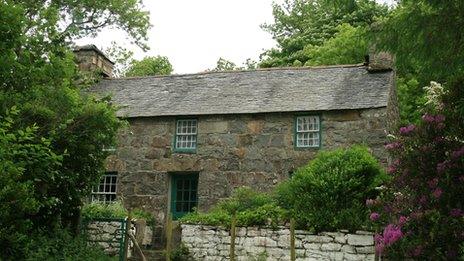Poet Hedd Wyn's home reopens ahead of 100th anniversary
- Published
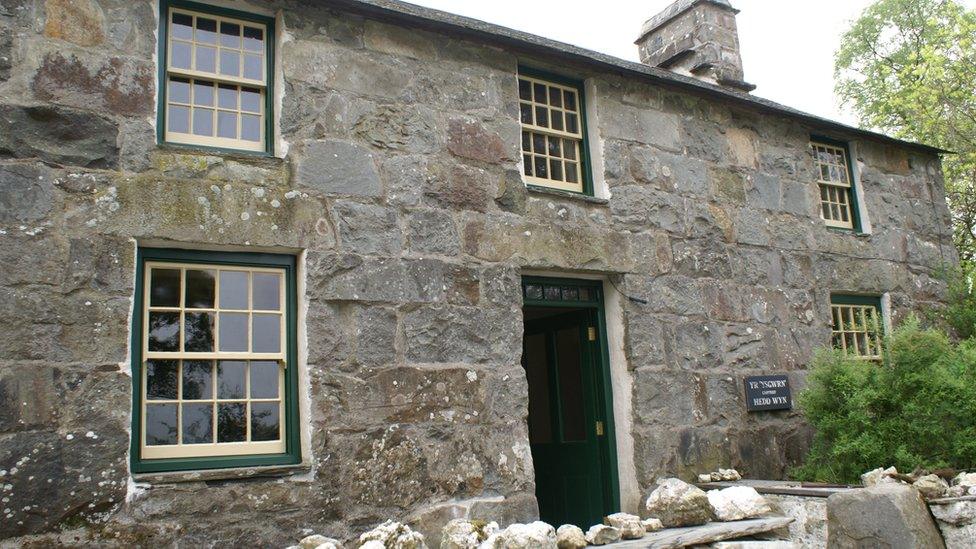
The home of the World War One poet Hedd Wyn will be ready to welcome the public in the next two weeks, after a £3m restoration project.
The farmhouse has been renovated - along with the Black Chair - awarded at the National Eisteddfod a few weeks after the bard's death in July 1917.
He was killed on the first day of the Battle of Passchendaele in Belgium.
A new exhibition and visitors' centre has also been built, and marks the impact of the war on the community.
"We are using Hedd Wyn as a hook really, to be able to tell all those wider stories," explained Sian Griffiths, who is managing the project for the Snowdonia National Park Authority.
"The story of the war, the First World War and its effect; about the culture, the language, the community, and how people lived at that time.
"So when people come to Yr Ysgwrn, they really do get a feel of how people used to live.
"It's a very different world now to what it was 100 years ago - we are taking people back in time a little bit and helping them understand how that community lived at that time."

The shepherd poet
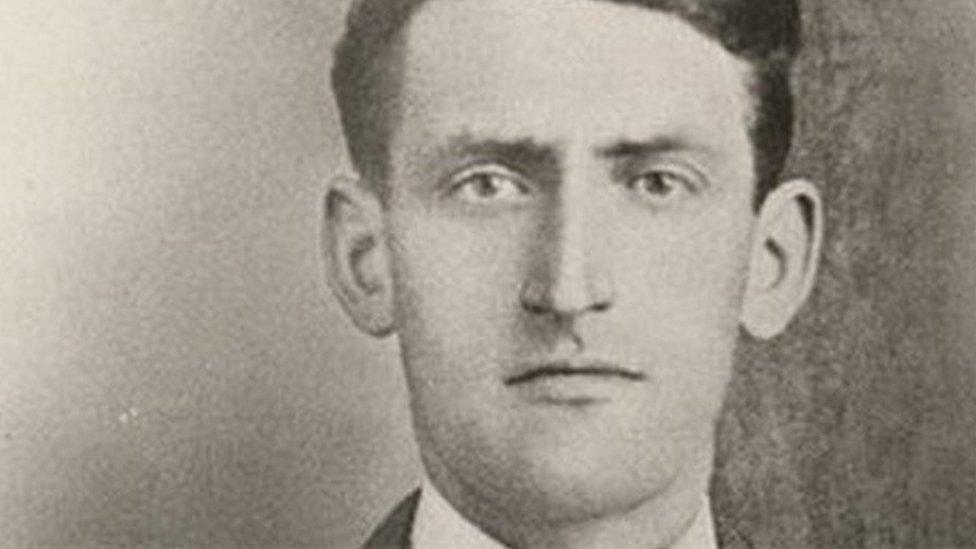
Hedd Wyn was the bardic name of Ellis Humphrey Evans.
He was 30-years-old when he died on the first day of the big push in what became the Third Battle of Ypres, as part of the 15th Battalion Royal Welsh Fusiliers tasked with capturing Pilckem Ridge.
But he was injured half way across, and died at a first aid post on 31 July, 1917. However, his story lives on.
In September 1917, the National Eisteddfod was being held at Birkenhead on Merseyside.
As today, the greatest prize and honour is to win the eisteddfod chair for poetry.
In 1917, it was for the poem 'Yr Arwr' - 'The Hero', external.
When the winner's named was called out in the pavilion, there was no answer.
Instead, the chair was draped in a black cloth, witnessed from the stage by the then prime minister and war-time leader David Lloyd George.
"No words can adequately describe the wave of emotion that swept over the vast audience when the chair was draped with the symbols of mourning," the Cambrian News and Merionethshire Standard newspaper reported at the time, external.

Hedd Wyn centenary: WW1 poet's story, home and chair
The project to restore Yr Ysgwrn has seen the farmhouse itself completely gutted, with furniture removed, restored and replaced, to show just how it would have appeared during the time of Hedd Wyn.
It even included taking samples of old wallpaper hidden under layer after layer of decorating, and having a new replica made to cover the kitchen walls.
Upstairs, visitors can see the other bardic chairs won by the poet before his death, while in the parlour - pride of place - the Black Chair.
After a decade in a dark and cold farmhouse, heated only by the kitchen fire, the chair had become fragile and damaged. It has taken more than a year to be restored by expert Hugh Haley in Carmarthen.
"Some bits of the chair had fallen off over the years and they needed to be restored and put back," said Ms Griffiths.
"It does look really, really nice."
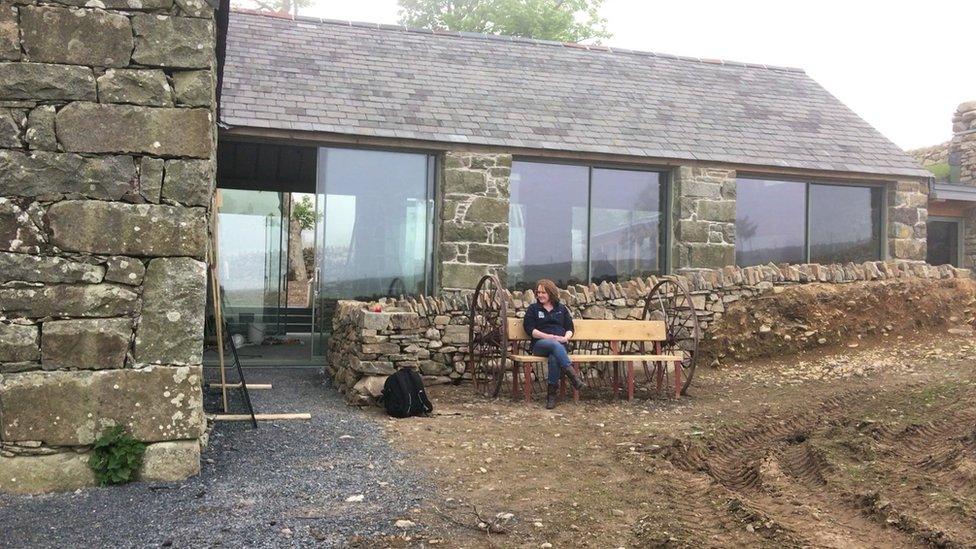
The Beudy Llwyd will welcome new visitors to Yr Ysgwrn
A former barn, the Beudy Llwyd, has been transformed into a visitors' centre, exhibition area and cafe funded by the park authority and Heritage Lottery Fund since it was acquired in 2012.
Another farm building, the Beudy Ty, is home to a display that marks the memory of every single soldier from the area killed in the Great War, and provides a place for quiet reflection.
The farm itself remains home to the man responsible for keeping the memory of Hedd Wyn alive - his nephew Gerald Williams.
He has kept the door open to the farmhouse and the Black Chair since 1954.
Now 88-years-old, he is delighted to see both the house and the chair returned to their former glory.
Hedd Wyn's nephew Gerald Williams has watched as the £3m restoration transformed Yr Ysgwrn farm
"They've brought the furniture back now and it looks more like it used to be in the old days," he says.
"Before it was very bare and I didn't like it, because I'd seen it full of life. It looks a lot better. It will bring life back.
"Hedd Wyn was representing, not himself, but all the young men from the area and all the young men from Wales in a way. He was an icon.
"I am very happy to see it all coming back."
Yr Ysgwrn will be reopening to the public on 6 June, though park officials said they had already had several large bookings, and urged visitors to check availability in advance.
- Published23 June 2016

- Published28 May 2014
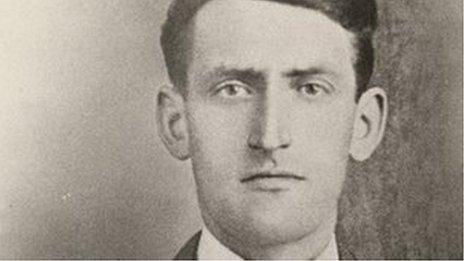
- Published2 March 2012
